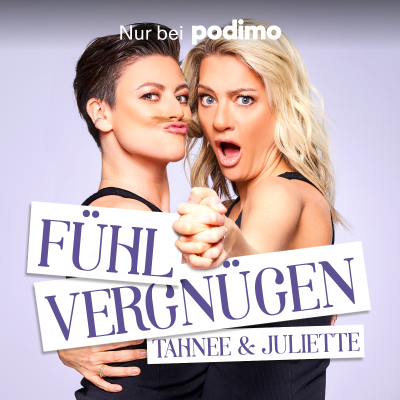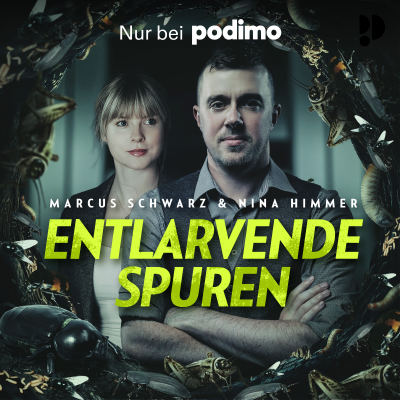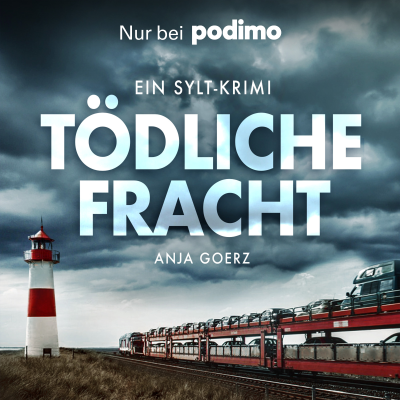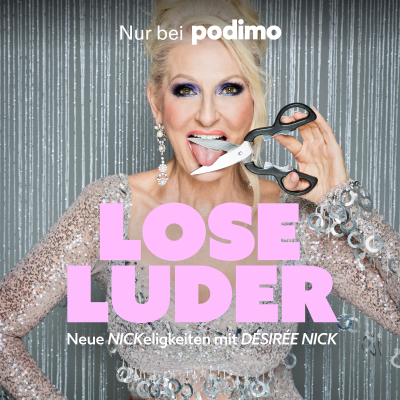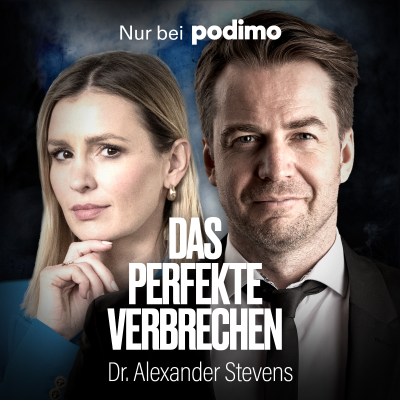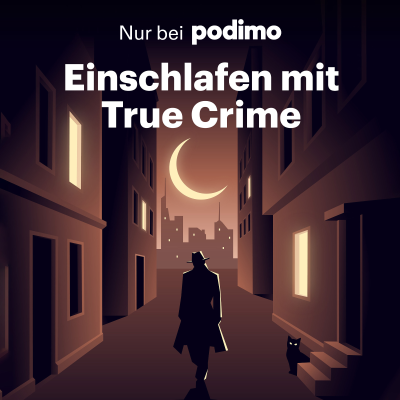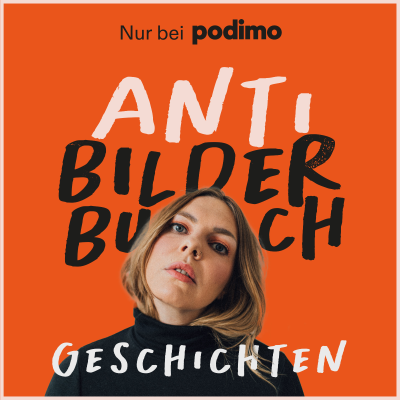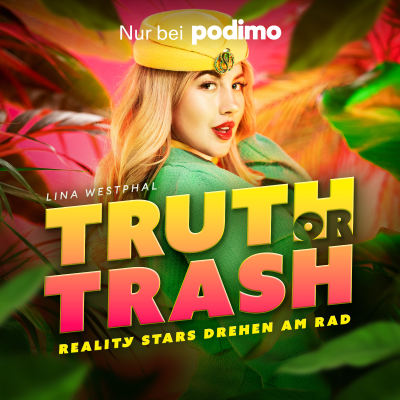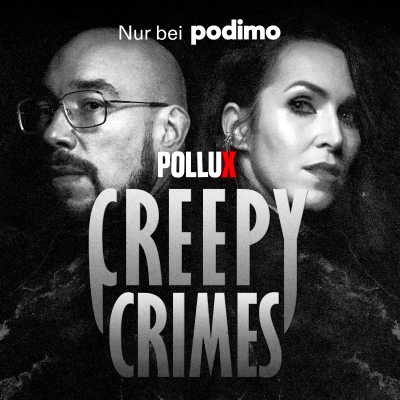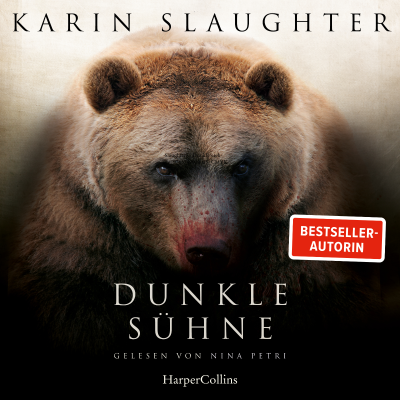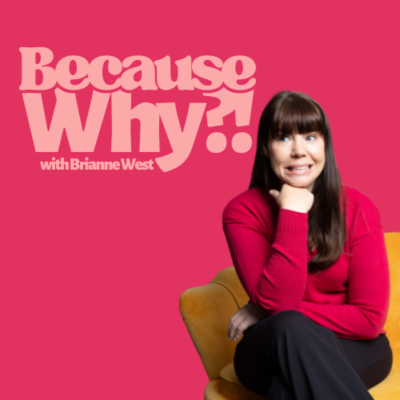
Because Why?! The Science and Society Pod.
Englisch
Gratis en Podimo
Kostenlos hören bei Podimo
Starte jetzt und verbinde dich mit deinen Lieblingspodcaster*innen
- Vertraut von über 1 Mio. deutschen Hörer*innen
- Über 1.000 lokale Podcasts und Shows – nur bei Podimo
- Keine Zahlung nötig
Mehr Because Why?! The Science and Society Pod.
Curious about, well… everything? Same. Welcome to Because Why?! Where science and nature, meets culture and business. If you care about people and planet, and want to know how the world really works - and how we can do better, you're in the right place. Because Why?! Because really, everything comes back to science. Expect episodes on everything from climate change and sustainability, to ethical business and history, politics, nature, conspiracy theories, human behaviour and who knows what else. It's all interesting. And unlike podcast bros, I have receipts.
Alle Folgen
88 FolgenSo, what did you miss?
A lot of the episodes this year looked at processes we’re supposed to put our faith in – the things that are supposed to make our lives more sustainable or our impact on the planet a bit less terrible. Stuff like supposed “green” solutions, chocolate that’s marketed as ethical, or the wellness industry promising to save your life. And yes, we all know some of this is a scam, but I don’t think we really appreciate just how much of a scam it actually is. So, to wrap up season three, instead of a brand-new episode, you get a recap of the most interesting episodes – the ones that made me frustrated, fascinated, and occasionally hopeful. Three years of consistently inconsistent podcasting later, here we are. You’re welcome. The past few weeks have been… a lot. Popcorn, my horse, has been trying to die. University exams happened. Incrediballs 2.0 is launching soon. And yes, I might be a little burnt out. But, like a grown-up, I’ll push ahead and see how ignoring that goes. In this episode, let’s go through: * How much of a scam the things we’re supposed to trust really are * The invention of synthetic nitrogen fertiliser and why it matters for the planet (and our food) * The environmental and human cost of cocoa farming and lawn culture * Disinformation and the totally unregulated wellness industry * How to even begin talking to the climate confused * Some fun and surprising science (yes, really) from fire, to 5G and plane toilets Thanks for joining me on this episode of Because Why?! Mā te wā - see you in 2026! You can get involved with the podcast online in the meantime, of course. Find our full podcast via the website here: https://www.nowthatwhatsicall.com Instagram: https://www.instagram.com/becausewhypod/ You can follow me on socials on the below accounts. Instagram: https://www.instagram.com/briannemwest/ Tiktok: https://www.tiktok.com/@briannemwest Linkedin: https://www.linkedin.com/in/briannemwest/ For our latest big project, find out more about Incrediballs here: https://incrediballs.com/
Are we doomed? A psychologist’s guide to climate anxiety
The world feels like a really bad parody movie right now – but it’s not funny. There’s a constant background hum of dread – climate change, biodiversity collapse, war – and it’s no wonder eco-anxiety has become a collective condition. Because of all this, I’m replaying one of our most popular episodes: my conversation with psychologist Dr. Susie Burke about eco-anxiety. It’s a surprisingly uplifting conversation about climate change – yes, really... Dr. Susie has years of experience in climate psychology and shares practical ways to handle eco-anxiety and other intense emotions, whether you’re angry, tired, or just numb. She reminds us that positive change is happening elsewhere and is within our reach. It's a breath of fresh air for anyone overwhelmed by constant climate news (and the news in general, frankly). In this episode, we talk about: * The perception gap: why more people care about climate change than you might think * The mental health impact of climate change and why eco-anxiety is normal * Strategies to cope with climate emotions, from small practical steps to collective action * How shifting business and consumer behavior can drive more change than waiting for governments * Why we are the first generation with a real shot at creating a sustainable world * How to support children in understanding and feeling empowered about environmental issues More About Dr. Susie Burke Check out her website here [https://www.susieburke.com.au/] Subscribe to Emily Writes here [https://emilywrites.substack.com/] More about Hannah Ritchie Author of Not the End of the World, check out her website and books here [https://hannahritchie.com/] More about The Conceivable Future Written by Meghan Elizabeth Kallman and Josephine Ferorelli, their website is here [https://www.conceivablefuture.org/] Tedx Talk: Changing the World: Why it Fails and What Works By Winnifred Louis, watch it here [https://www.youtube.com/watch?v=AI4eSI-GbXM] Thanks for joining me on this episode of Because Why?! Mā te wā - see you next week. You can get involved with the podcast online in the meantime, of course. Find our full podcast via the website here: https://www.nowthatwhatsicall.com Instagram: https://www.instagram.com/becausewhypod/ You can follow me on socials on the below accounts. Instagram: https://www.instagram.com/briannemwest/ Tiktok: https://www.tiktok.com/@briannemwest Linkedin: https://www.linkedin.com/in/briannemwest/ For our latest big project, find out more about Incrediballs here: https://incrediballs.com/
Did you fall for the myth? How misinformation & racism made MSG a monster
MSG causes headaches, chest tightness, tingling arms and weakness - or at least that’s what we’ve all been told. For decades, MSG was considered public enemy number one, banned from restaurants and demonised in the media. But why? MSG is everywhere: in tomatoes, mushrooms, parmesan cheese, soy sauce, even breast milk. So how did it become a “toxic chemical killer” in the public imagination? Today I’m breaking down the bizarre story of MSG, from its origins in Japan, to its rise across Asia and the West, through to the flawed science and racism that turned it into a food villain. So, because why are we so afraid of MSG? In this episode let's unpack: * The discovery of MSG and the origin of umami * How MSG spread across Asia and into Western diets * Why “Chinese Restaurant Syndrome” started from just one letter * The flawed studies that fuelled the MSG scare * The racial undertones behind the MSG panic * Why MSG is actually safer than table salt * How modern chefs and TikTok are reclaiming MSG as “umami dust” Thanks for joining me on this episode of Because Why?! Mā te wā - see you next week. You can get involved with the podcast online in the meantime, of course. Find our full podcast via the website here: https://www.nowthatwhatsicall.com Instagram: https://www.instagram.com/becausewhypod/ You can follow me on socials on the below accounts. Instagram: https://www.instagram.com/briannemwest/ Tiktok: https://www.tiktok.com/@briannemwest Linkedin: https://www.linkedin.com/in/briannemwest/ For our latest big project, find out more about Incrediballs here: https://incrediballs.com/
Superfoods, or super scam? How 'superfoods' aren't really super for anyone...
There is a food trend that aims to give you glowing skin, supercharged memory, endless energy, and protection from every disease that you can probably think of. You’ll have seen the word for it stamped on cereal boxes and blended into smoothies, and it’s always talked about by wellness influencers. What is that magic word? Well, it’s superfood, of course. But are superfoods really all that super? Short answer: no. But the longer answer is that it affects so many people in negative ways, when there are some very simple other foods we could be eating. So today, I’m debunking superfoods and sharing what you could be eating instead. Plus: * The early history of superfoods * Where the term superfood came from * How wellness culture impacted the rise of the superfood term * What a ‘health halo’ is * Where the best nutrition comes from * The foods that are actually a bit superfoody but are very common * How the exotic factor plays into hyping superfoods * The farmer exploitation aspect of superfoods * What the real superfood/power is Thanks for joining me on this episode of Because Why?! Mā te wā - see you next week. You can get involved with the podcast online in the meantime, of course. Find our full podcast via the website here: https://www.nowthatwhatsicall.com Instagram: https://www.instagram.com/becausewhypod/ You can follow me on socials on the below accounts. Instagram: https://www.instagram.com/briannemwest/ Tiktok: https://www.tiktok.com/@briannemwest Linkedin: https://www.linkedin.com/in/briannemwest/ For our latest big project, find out more about Incrediballs here: https://incrediballs.com/
It's not me, it's my star sign
Why do people still believe in horoscopes, even when we know they’re not true? (If this is you, I'm curious, not judging.) For nearly a century, people have turned to horoscopes for all sorts of advice, and they’re actually more popular now than ever. But how is this still so widespread when it’s been clearly debunked time and again? Turns out, there are a lot of reasons - and the story is more complicated (and fascinating) than you might think. In this episode let's get into: * The ancient history of the zodiac signs * How astrology and zodiac systems differ across countries * How science eventually outpaced astrology * Why zodiac signs got out of alignment - and why no one seemed to care * How astrology reinvented itself to stay relevant and believable * The ways astrology sneaks into modern life that you might not even notice * Why astrology is booming right now * The psychology behind why we want astrology to work * How the wording of horoscopes subtly manipulates us * How horoscope writing has been tailored to target women * Why you can’t convince astrology fans they’re wrong * How celestial bodies really do affect us (just not in the way horoscopes claim) Thanks for joining me on this episode of Because Why?! Mā te wā - see you next week. You can get involved with the podcast online in the meantime, of course. Find our full podcast via the website here: https://www.nowthatwhatsicall.com Instagram: https://www.instagram.com/becausewhypod/ You can follow me on socials on the below accounts. Instagram: https://www.instagram.com/briannemwest/ Tiktok: https://www.tiktok.com/@briannemwest Linkedin: https://www.linkedin.com/in/briannemwest/ For our latest big project, find out more about Incrediballs here: https://incrediballs.com/
